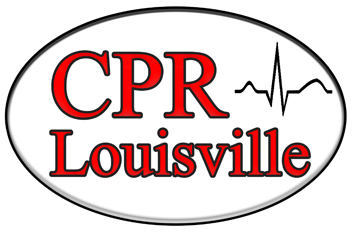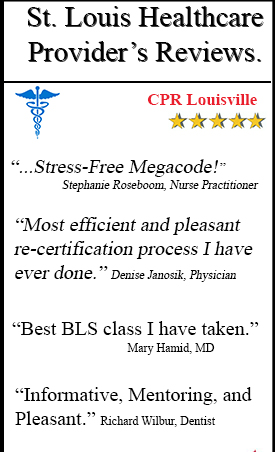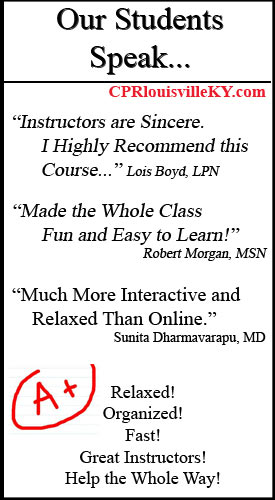In critical moments, the ability to perform CPR (Cardiopulmonary Resuscitation) can mean the difference between life and death. CPR training equips individuals with the necessary skills to respond confidently during emergencies, potentially saving lives and making a significant impact in their communities. In this article, we will explore the importance of CPR training, and the benefits it offers, and provide valuable tips for individuals seeking CPR training in Louisville. Whether you are a concerned citizen, a healthcare professional, or simply someone who wants to make a difference, this guide will help you navigate the process of getting CPR training effectively.
CPR is a life-saving technique performed when a person’s heart has stopped beating or when they are not breathing adequately. Its purpose is to restore blood flow and oxygen to the vital organs, sustaining life until professional medical help arrives. Understanding how CPR works, including chest compressions and rescue breaths, is crucial in building the foundation for an effective response during emergencies. Knowing when to perform CPR, such as in cases of sudden cardiac arrest or when someone is unresponsive and not breathing, is essential to initiate timely intervention.
Finding a CPR Training Program
When it comes to CPR training, choosing a reputable training provider is paramount. Researching and identifying established training programs in Louisville is the first step. Look for providers affiliated with recognized organizations, such as the American Heart Association (AHA), as they offer comprehensive and standardized training. CPR Louisville is an AHA Aligned Training Center and provides a stress-free training experience. Evaluate course options, considering factors such as the level of certification (e.g., HeartSaver, Basic Life Support, or Advanced Cardiac Life Support), course duration, and the flexibility of scheduling. Additionally, consider the cost and location of training centers to ensure convenience and accessibility.
Preparing for CPR Training
Before attending CPR training, preparing both physically and mentally is important. While CPR training does not have strict physical requirements, it’s essential to ensure you are in reasonably good health and capable of performing the necessary actions. Mental preparation involves understanding the importance of the training and the potential emotional challenges of dealing with emergency situations. Gather required documents or materials, such as identification or pre-course assignments, to streamline the registration process.
To make the most of your CPR training experience, here are some valuable tips to keep in mind:
- Dress comfortably and appropriately: Wear comfortable clothing that allows for easy movement during hands-on practice. Avoid wearing jewelry or accessories that may interfere with training.
- Arrive early and be well-rested: Arriving early ensures a smooth check-in process and allows you to settle in before the training begins. Being well-rested improves focus and maximizes learning during the course.
- Participate actively and ask questions: Engage in discussions, ask questions, and seek clarification whenever needed. Active participation enhances understanding and retention of the course material.
- Practice hands-on skills: CPR training involves hands-on practice to develop muscle memory and build confidence in performing CPR techniques. Take advantage of practice sessions to refine your skills.
- Take advantage of practice scenarios: Many CPR training programs include simulated scenarios to replicate real-life emergencies. Embrace these opportunities to apply your skills in a simulated setting, as they help build preparedness and decision-making abilities.
CPR training is just the beginning of your journey towards being a proficient life-saver. To maximize retention and skill development:
- Review course materials regularly: Take time to review the CPR training materials regularly, reinforcing your knowledge and techniques.
- Seek additional learning opportunities: Supplement your CPR training by exploring additional learning resources, such as online tutorials, videos, or articles, to deepen your understanding of CPR techniques and concepts.
- Refreshing skills through re-certification: CPR certification typically has an expiration date, usually every two years. To ensure your skills stay current, make it a priority to renew your certification before it expires. Re-certification courses provide an opportunity to refresh your knowledge, and practice skills, and stay up-to-date with any changes in CPR guidelines.
CPR skills require regular practice and updating to remain effective. Here are some strategies to maintain your CPR skills beyond initial training:
- Regularly reviewing CPR techniques: Set aside time periodically to review CPR techniques, including chest compressions, rescue breaths, and AED usage. This helps reinforce muscle memory and keeps your skills sharp.
- Staying updated with guidelines and advancements: CPR guidelines are periodically updated based on scientific research and advance in resuscitation techniques. Stay informed about any changes through reputable sources, such as the AHA or other professional organizations.
- Participating in refresher courses: Consider attending refresher courses or workshops offered by CPR training providers. These courses offer hands-on practice, provide updates on CPR guidelines, and offer an opportunity to address any specific challenges or questions you may have.
CPR certification is a vital skill that empowers individuals to respond effectively during life-threatening emergencies. In Louisville, acquiring CPR training is an important step toward creating a safer community where lives can be saved. By understanding the basics of CPR, finding a reputable training program, and following the tips shared in this blog post, you can make the most of your CPR training experience. Remember to maintain your skills through regular practice, staying updated with guidelines, and pursuing refresher courses. Together we can contribute to a society where more individuals are equipped to save lives. Take action today, get CPR certified, and become a confident and capable responder in emergency situations.
Looking to obtain CPR training in Louisville? Look no further! Our comprehensive guide provides essential tips for getting CPR training in Louisville, ensuring you’re equipped with life-saving skills. Whether you’re a first-time learner or need to renew your CPR certification, our expert instructors offer top-notch courses tailored to your needs. Don’t miss out on this opportunity to become CPR certified in Louisville and gain the confidence to respond effectively in emergency situations. Sign up now for our CPR Louisville training and CPR renew Louisville programs to secure your spot today!





